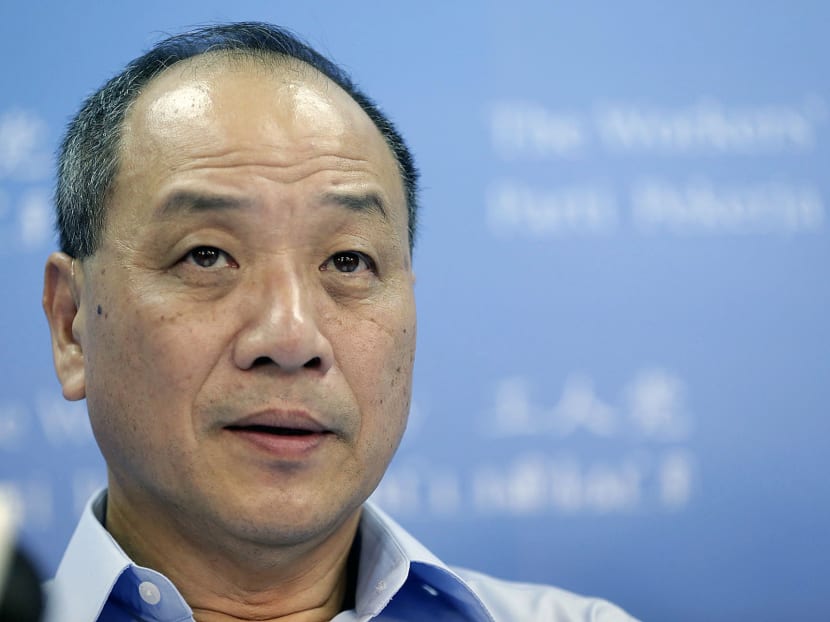New law meant to deter public from expressing views, says WP
SINGAPORE — The Workers’ Party (WP) slammed the Administration of Justice (Protection) Bill in Parliament yesterday as its members unanimously voted against it, with party chief Low Thia Khiang accusing the Government of “double standards” when it comes to fair comment on cases before the courts.
SINGAPORE — The Workers’ Party (WP) slammed the Administration of Justice (Protection) Bill in Parliament yesterday as its members unanimously voted against it, with party chief Low Thia Khiang accusing the Government of “double standards” when it comes to fair comment on cases before the courts.
Speaking in Mandarin, Mr Low said the real purpose of the new law — which was eventually passed with 72 votes for the Bill and nine against — was not to protect the fairness of judicial proceedings, but to “deter members of (the) public from voicing their views, although they may be reasonable and legal”.
The new law, he said, would effectively give the Government or minister “unlimited rights”, such that “whatever statement which a member of the public makes can be considered as contempt of court”.
“Yet, when it (comes) from the mouth of the minister, it becomes completely legal, so long as the Government can say that this is in public interest,” Mr Low said, referring to a provision under the new law that would allow the Government to make a statement on a case if it is deemed necessary for public interest.
“The question is: What is in public interest? There’s no clear indication in this Bill, so who decides? Of course the Government decides,” he said.
He added: “This is double standards, giving the Government all the rights but not the people ... The court has become the Government’s tool to suppress freedom of speech and to deal with the people opposing the Government.”
The newly passed Administration of Justice Act consolidates key elements of the law of contempt into statute.
Until now, contempt was based on case law, and was not a criminal offence.
Under the new law, the main types of contempt are disobeying court orders, publishing material that interferes with ongoing proceedings, sub judice and scandalising the court, such as by accusing a judge of bias without basis.
Ms Sylvia Lim (Aljunied GRC), who is chairman of the party, said the existing contempt of court law “already protects the due administration of justice”.
“The law is to be found in case law, and has worked well thus far. I have seen no evidence of law inadequacy,” said Ms Lim, adding that she has not come across courts recommending the need for more protection in this regard.
Asking if the Ministry of Law was “chasing shadows”, Ms Lim pointed out that Law Society’s president Thio Shen Yi was “strongly criticised” by Law Minister K Shanmugam for commenting on the Benjamin Lim case, but public officials such as Mr Shanmugam “could make statements”. Benjamin, 14, was found dead shortly after returning home from a police interview over an alleged molest case, and his case sparked much public discussion.
“Has he (Mr Shanmugam) been facing accusations that he acted in contempt of court, and wants a blanket licence to say what he likes?” charged Ms Lim.
The WP parliamentarians were also concerned that there was insufficient public consultation before the Bill was introduced in Parliament on July 11. Ms Lim pointed out that the Bill was put on the Reach website — where the public can provide feedback — a day after it was tabled.
Non-Constituency MP Daniel Goh felt the new law would undermine people’s trust in the Government. Pointing out that trust is a “two-way street”, he said he would like to be able to “express fair criticism and fair comment on events of public interest” that concern him.
Responding, Mr Shanmugam dismissed the argument that the new law clamps down on free speech. “It doesn’t really affect what (people) can do or what they have been doing. Unless they want to think in terms of going public and attacking witnesses and judges, and trying to get certain results from the court,” he said.
He reiterated that the sanctity of the judiciary had to be weighed against “some people’s desire to launch personal attacks against judges”.
“Remember, those who attack the judges fall within a wide spectrum — from the idealistic, to those who are constitutionally sour, to those who are outright dishonest,” he said.
Responding to NCMP Leon Perera’s suggestion that the Government was trying to rush the new law through, Mr Shanmugam said: “I didn’t know you’ll consider six years a rush to legislate. It is slow by the Government’s standards.”










